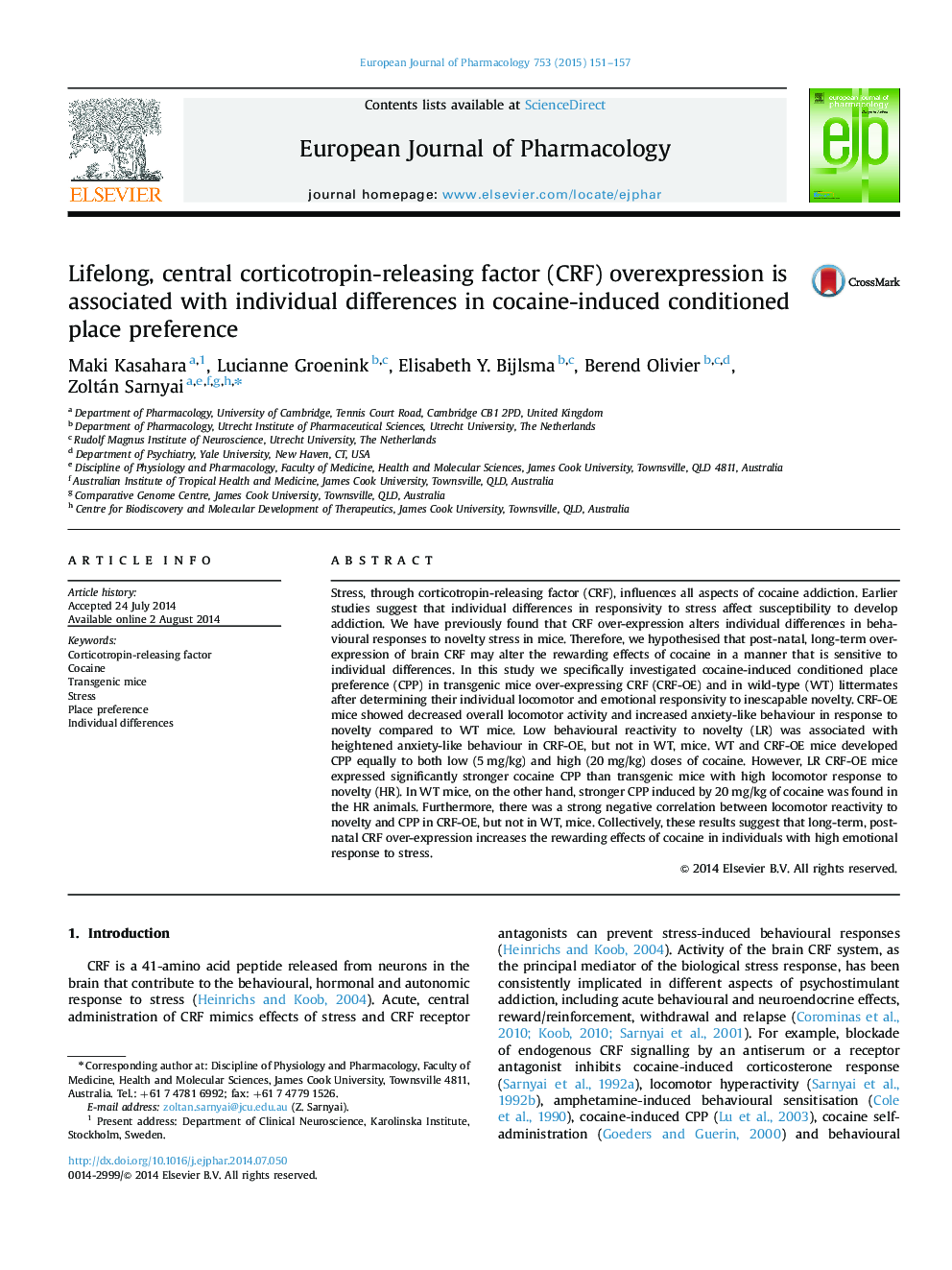| Article ID | Journal | Published Year | Pages | File Type |
|---|---|---|---|---|
| 5827473 | European Journal of Pharmacology | 2015 | 7 Pages |
Stress, through corticotropin-releasing factor (CRF), influences all aspects of cocaine addiction. Earlier studies suggest that individual differences in responsivity to stress affect susceptibility to develop addiction. We have previously found that CRF over-expression alters individual differences in behavioural responses to novelty stress in mice. Therefore, we hypothesised that post-natal, long-term over-expression of brain CRF may alter the rewarding effects of cocaine in a manner that is sensitive to individual differences. In this study we specifically investigated cocaine-induced conditioned place preference (CPP) in transgenic mice over-expressing CRF (CRF-OE) and in wild-type (WT) littermates after determining their individual locomotor and emotional responsivity to inescapable novelty. CRF-OE mice showed decreased overall locomotor activity and increased anxiety-like behaviour in response to novelty compared to WT mice. Low behavioural reactivity to novelty (LR) was associated with heightened anxiety-like behaviour in CRF-OE, but not in WT, mice. WT and CRF-OE mice developed CPP equally to both low (5Â mg/kg) and high (20Â mg/kg) doses of cocaine. However, LR CRF-OE mice expressed significantly stronger cocaine CPP than transgenic mice with high locomotor response to novelty (HR). In WT mice, on the other hand, stronger CPP induced by 20Â mg/kg of cocaine was found in the HR animals. Furthermore, there was a strong negative correlation between locomotor reactivity to novelty and CPP in CRF-OE, but not in WT, mice. Collectively, these results suggest that long-term, post-natal CRF over-expression increases the rewarding effects of cocaine in individuals with high emotional response to stress.
